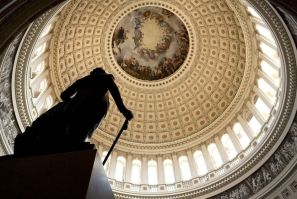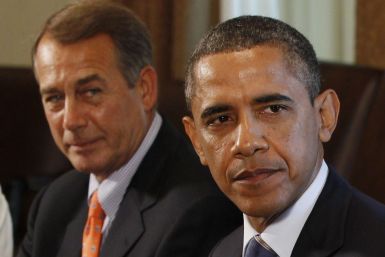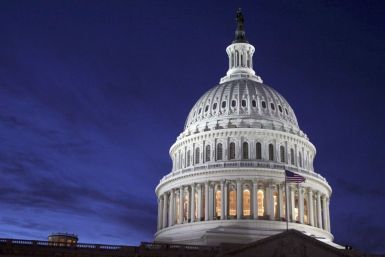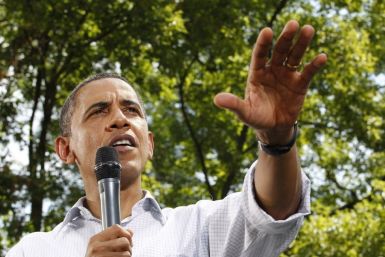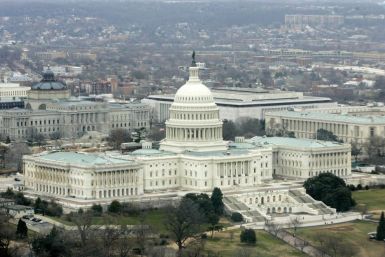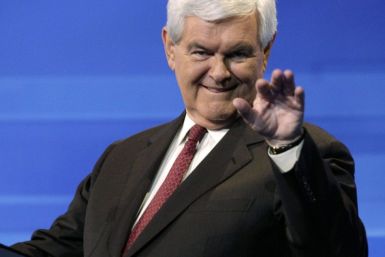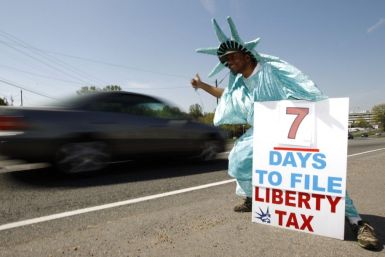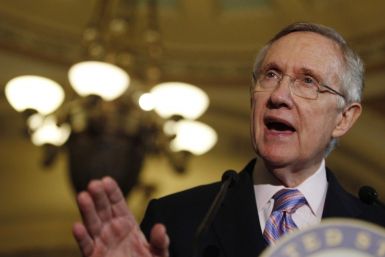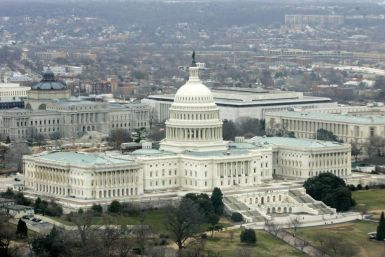Despite President Obama rescheduling his jobs speech to Congress at the request of Republicans, several Republicans have announced they won't be attending.
President Barack Obama is said to be planning to inject about $300 billion into the economy next year through tax cuts and infrastructure spending, and will present his plan in a speech later this week.But Republicans won't show up for Obama's address or offer an official televised rebuttal, as they say the President's speech will sink or swim on its own
President Barack Obama's anticipated jobs speech is still more than a day away but already it's causing a controversial rift among Republican and Democratic leaders. Republicans have decided not to give a rebuttal to the Obama's speech Thursday before Congress, and House Democratic Leader Nancy Pelosi says the lack of response will be disrespectful to the President and to the American people.
After a slow start that has frustrated U.S. business groups, the next four months could be important to President Barack Obama's legacy on trade.
Bipartisan committee will meet same day as Obama's economy speech.
Keep in mind that since the election of John F. Kennedy, no Catholic has ascended to the White House. Neither has a woman, or a Jew, or an Asian or a Latino.
Obama and presidential contenders point out flaws, defend themselves.
House Minority Leader Nancy Pelosi, D-Calif., rounded out the super committee by announcing her three House Democratic members for the special bipartisan board. Now the tough work begins: reducing the deficit by at least another $1.5 trillion over 10 years, and as far as the financial markets are concerned, the sooner the reduction is announced, the better.
Republican presidential hopeful Newt Gingrich hasn't had much success in the race of late, losing all momentum and most of his staff, but finally got back on track last night in a televised debate.
Choices add diversity to the panel.
A leading Republican lawmaker would not rule out tax increases on Thursday if they fostered economic growth, adding that "everything is on the table" for a U.S. congressional panel charged with forging a deal to cut the deficit.
The House minority leader picked Chris Van Hollen of Maryland, Xavier Becerra of California and James Clyburn of South Carolina, rounding out the 12-member deficit-fighting panel.
With the appointment of nine of 12 members, the "super committee" charged with reducing the budget deficit by at least another $1.5 trillion is taking shape. The body could help stabilize the financial markets by announcing a ?quick-start? agreement on additional debt reduction.
Republicans named their six members on Wednesday to a U.S. congressional deficit-reduction super committee, including a favorite of the conservative Tea Party movement and other no-new-taxes hardliners.
Sen. Harry Reid announced that he is appointing Sens. Patty Murray (Wash.), Max Baucus (Mont.) and John Kerry (Mass.) to a 12 member committee, mandated by the U.S. debt deal, that will be responsible for slicing more than $1 trillion out of the federal deficit.
House Leaders announced on Monday that they are shutting down the House page program, a nearly 200-year-old institution which allowed high school students to serve as messengers and learn about the Congress
When you are the leader of the free world, you can invite whomever you want to an event and they will show up.
Representative Gabrielle Giffords returned to the House floor on Monday for the first time since she was shot in the head in January, receiving a thunderous ovation from Democrats and Republicans alike.
Representative Gabrielle Giffords returned to the U.S. House on Monday night for the first time since an assassination attempt, drawing thunderous applause in a rare moment of unity during a contentious vote to raise the U.S. debt ceiling.
U.S. Congresswoman Gabrielle Giffords reminded Washington and the rest of America and watching world that yes, miracles do happen. Her arrival on the scene to cast a vote for the debt-limit bill came at just the right moment.
Turning a new page in her post-shooting life, U.S. Congresswoman Gabrielle Giffords attended Congress last night to take part in the voting on the debt deal.
The White House and congressional leaders scrambled for enough support from skeptical lawmakers on Monday to push through an 11th-hour deal to raise the U.S. borrowing limit and avert a devastating debt default.



